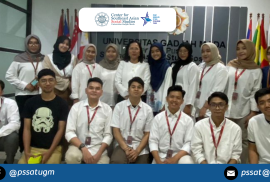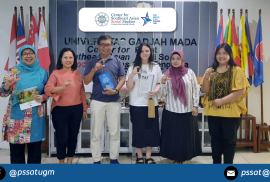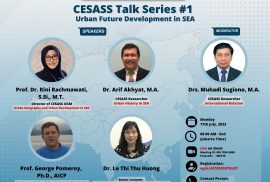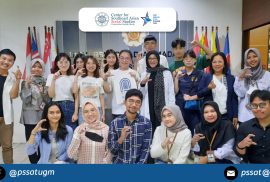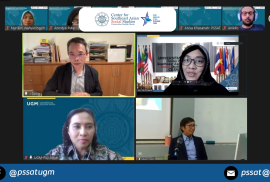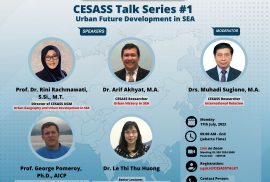
Center for Southeast Asian Social Studies (CESASS) UGM is one of the study centers involved in the Study of Planning and Mapping of Digital Ecosystem Solutions Needs in Tojo Una-Una Regency which was organized by BAKTI Ministry of Communication and Informatics of the Republic of Indonesia and Universitas Gadjah Mada. CESASS UGM research team consists of Prof. Dr. Rini Rachmawati, S.Si., M.T. as Lead Researcher and Head of CESASS UGM, Amandita ‘Ainur Rohmah, S.Sc., M.Sc. and Azis Musthofa, S.Si. as Assistant Researcher. The phase I of data collection activities were carried out on 22-29 July 2023. The FGD activities were held on Monday, 24 July 2023 at the Lawaka Hotel, Ampana Kota, Tojo Una-Una Regency and was attended by 45 participants from various regional apparatuses, representatives of the private sector, academics, and community groups in the Tojo Una-Una Regency. The FGD activity was opened by Assistant II for the Economy and Development of the Regional Secretary of Tojo Una-Una Regency. Apart from carrying out the FGD activities, both of UGM Research Team and BAKTI also carried out field observations on the conditions of BTS and IA (Internet Access), as well as in-depth interviews regarding the use of internet access for the education, health and government sectors in various regions including Togean Island. Observation activities and in-depth interviews also target Culinary SMEs and Tourism SMEs. Furthermore, data collection was also carried out by carrying out in-depth interviews with relevant regional officials in Tojo Una-Una Regency.


